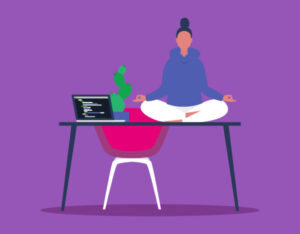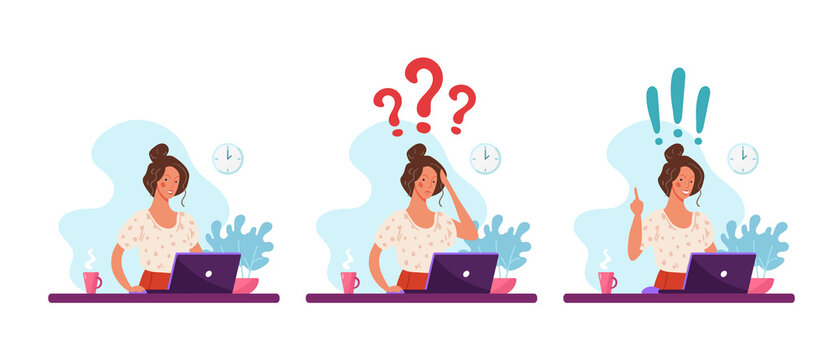Do you feel like you’re constantly under pressure at work? If so, you’re not alone. According to a study by the American Psychological Association, workplace stress has increased significantly in recent years. This can be extremely harmful to your health, both physically and mentally. That’s why it’s important to find ways to relieve stress in the office. In this blog post, we will discuss 16 different office stress relief tips that actually work!
Contents
- 1 Defining Office Stress
- 2 Importance Of Office Stress Relief
- 3 Top 16 Office Stress Relief Tips
- 3.1 Get organized
- 3.2 Take healthy breaks
- 3.3 Reinforce necessary boundaries
- 3.4 Create a support network
- 3.5 Set realistic goals
- 3.6 Don’t try to do everything yourself
- 3.7 Speak up when you’re feeling overwhelmed
- 3.8 Ensure comfort
- 3.9 Avoid conflict or drama
- 3.10 Nourish yourself regularly
- 3.11 Make time for things outside the office
- 3.12 Take advantage of EAPs
- 3.13 Keep work away from home
- 3.14 Practice mindfulness and relaxation
- 3.15 Make a list of your accomplishments
- 3.16 Know your rights
- 4 Conclusion
Defining Office Stress
 We are no strangers to stress. In fact, we experience stress in our everyday lives. But what is office stress? Office stress is defined as “the feeling of being under mental or emotional pressure at work.” This can be caused by a variety of factors, such as long hours, tight deadlines, difficult co-workers, and more.
We are no strangers to stress. In fact, we experience stress in our everyday lives. But what is office stress? Office stress is defined as “the feeling of being under mental or emotional pressure at work.” This can be caused by a variety of factors, such as long hours, tight deadlines, difficult co-workers, and more.
With a rise in the demand of the workforce and an ever-growing list of responsibilities, it’s no wonder that office stress is on the rise. In fact, a study by the American Psychological Association found that workplace stress has increased significantly in recent years.
This increase in stress can be extremely harmful to your health, both physically and mentally. That’s why it’s important to find ways to relieve stress in the office. Doing so can deem beneficial for both you and your employer.
Importance Of Office Stress Relief
Stress is an inevitable part of life. In fact, some amount of stress can actually be good for you. It can help you stay alert and motivated. However, too much stress can be detrimental to your health. It can become a root cause of various health problems, both psychological as well as physical.
That’s why it’s important to find ways to relieve stress in the office. This can propose multiple benefits, for yourself and your work-life. Some of these benefits include:
- Increased productivity
- Improved focus
- Better decision making
- Reduced absenteeism
- Lower employee turnover rates
- Healthier team morale
As you can see, there are many benefits to managing stress in the workplace. Not only will it improve your health and well-being, but it will also have a positive impact on your work performance.
Top 16 Office Stress Relief Tips
Now that we are aware of the importance of stress relief in the workplace, let’s discuss some tips on how to achieve it. Here are 16 office stress relief tips that actually work.
Get organized
 Chaos and lack of ordered organization are one of the primary sources of stress in the workplace. It can be very difficult to focus and be productive when your work area is cluttered and disorganized. Be it a messy desk or an overflowing inbox, taking the time to organize your work area can do wonders for your stress levels.
Chaos and lack of ordered organization are one of the primary sources of stress in the workplace. It can be very difficult to focus and be productive when your work area is cluttered and disorganized. Be it a messy desk or an overflowing inbox, taking the time to organize your work area can do wonders for your stress levels.
That’s why it’s important to take some time each day to organize your workspace. This will help you feel more in control and less stressed. Some helpful tips for getting organized:
- Use a planner or calendar to keep track of deadlines and upcoming projects
- Create a to-do list each day
- Use additional storage solutions, such as filing cabinets or storage bins, to keep your work area tidy
- Set aside time each week to declutter and organize your desk
- Download a productivity app to help you keep track of your tasks
- Designate a specific area for important documents
- Invest in some storage solutions, such as shelves, bins, or drawers
All these can aid and assist you in keeping your work area organized, thus reducing stress levels.
Take healthy breaks
When we are stressed, our bodies go into “fight or flight” mode. This is a natural survival instinct that dates back to our caveman days. In this state, our bodies release stress hormones, such as adrenaline and cortisol. These hormones can be beneficial in short bursts but can be harmful if they are constantly released.
To avoid the negative effects of these stress hormones, it’s important to take healthy breaks. This will allow your body to relax and rejuvenate, thus reducing stress levels. Some tips for taking healthy breaks:
- Get up and walk around every 30 minutes
- Stretch or do some light exercises
- Take a few deep breaths
- Take a short nap
- Listen to music
- Take a break from electronics
All these activities can help you reduce stress and rejuvenate your body and mind.
Reinforce necessary boundaries
 Now-a-days, it is a very common practice for employees or even co-workers to exchange personal phone numbers and contact information. While this may seem like a harmless gesture, it can actually lead to boundary issues.
Now-a-days, it is a very common practice for employees or even co-workers to exchange personal phone numbers and contact information. While this may seem like a harmless gesture, it can actually lead to boundary issues.
It’s important to remember that you are entitled to have boundaries, both at work and in your personal life. You don’t owe anyone your time or attention outside of work hours. This is especially important if you are working remotely.
If you find yourself in a situation where someone is crossing your boundaries, it’s important to reinforce them. This can be done by:
- Politely declining invitations to events or gatherings outside of work hours
- Setting up an auto-responder on your email that states you are unavailable after work hours
- Unsubscribing from work-related emails or notifications outside of work hours
- Letting your co-workers know that you are not available to answer work-related questions or problems outside of work hours
- Demanding adequate compensation for any overtime work
- Segregating devices so that you only use work devices for work and personal devices for personal matters
- Making it clear to your co-workers, boss, or clients that you have a life outside of work and that they should respect your boundaries
- Saying no to requests for favors or additional work
By reinforcing your boundaries, you are telling others that your time and attention are valuable. This will also help you to feel more in control and less stressed.
Create a support network
It is no secret that humans are social creatures. We thrive on social interaction and connection. This is why it’s important to have a support network, both at work and in our personal lives.
A support network can provide emotional and practical support when we are feeling stressed. Some ways to create a support network:
- Join or create an employee resource group
- Attend company social events
- Make friends with your co-workers
- Keep in touch with friends and family
- Find a mentor
- Join a professional organization
All of these activities can help you feel connected and supported, both at work and in your personal life. Having a support network can help reduce stress levels by providing social and emotional support.
Set realistic goals
It may be very evident that today’s times are based on productivity. We are constantly being bombarded with messages that we need to be productive in order to be successful. This can lead to unrealistic expectations and goals.
When we set unrealistic goals, we are setting ourselves up for disappointment and stress. It’s important to remember that we cannot do everything and that it’s okay to say no.
There are also instances wherein your senior or boss might set unrealistic goals for you. In these cases, it is important to have a discussion about these goals. Remember that you are entitled to your time and attention and that you should not be expected to work beyond your capacity.
Don’t try to do everything yourself
 When we are at work, it is a natural tendency to want to do everything ourselves. We want to be seen as competent and capable. However, this can lead to us taking on more than we can handle.
When we are at work, it is a natural tendency to want to do everything ourselves. We want to be seen as competent and capable. However, this can lead to us taking on more than we can handle.
It’s important to remember that it’s okay to ask for help. Asking for help does not make you weak or incompetent, it shows that you are smart enough to know your limitations.
There are also instances wherein you might be asked to do something that is not in your job description. In these cases, it is important to speak up and ask for help. This will show your boss or senior that you are not afraid to ask for help when needed and that you are not trying to take on more than you can handle.
Speak up when you’re feeling overwhelmed
It is very easy to feel like you’re the only one feeling stressed at work. However, this is not the case. Many people feel overwhelmed and stressed at work. The important thing is to speak up when you’re feeling overwhelmed.
Some ways to speak up:
- Talk to your boss, senior or co-workers
- Approach the HR
- See a therapist
All of these people can help you to feel less overwhelmed and stressed. It’s important to remember that you are not alone in feeling this way and that there is support available. By speaking up, you are also helping to create a more supportive and understanding environment for others who might be feeling the same way.
Ensure comfort
 Most jobs these days consist of sitting in front of a computer for long hours. This can lead to neck and back pain, headaches, and fatigue. It is important to ensure comfort while working.
Most jobs these days consist of sitting in front of a computer for long hours. This can lead to neck and back pain, headaches, and fatigue. It is important to ensure comfort while working.
Some ways to ensure comfort are:
- Use an ergonomic chair
- Bring comforters such as pillows or blankets
- Use a standing desk
- Decorate your workspace
- Use temperature regulators
- Take breaks often
- Stretch or do some light exercises
Ensuring comfort will help you to feel better physically and mentally. When we are in pain, it is natural to feel stressed and overwhelmed. By ensuring comfort, you are helping to reduce stress levels.
Avoid conflict or drama
Office politics is an inevitable part of working life. However, it is important to avoid conflict or drama as much as possible. This can be a major source of stress. Some tips to avoid conflict or drama are:
- Be polite and professional
- Avoid gossiping
- Be assertive but not aggressive
- Refrain from sharing too much personal information
- Keep to yourself
- Don’t take sides
If you find yourself in the middle of a conflict or drama, it is important to remain calm and professional. This will help to diffuse the situation and avoid further stress.
Nourish yourself regularly
One of the main reasons behind stress and burnout is that we neglect our own needs. We forget to eat, drink water, and take breaks. It is important to nourish yourself regularly in order to avoid stress and burnout.
While this may seem like a non-achievable or unimportant task, make it a priority to take care of yourself first. Eat healthy meals, drink plenty of water, and get enough sleep. You will be surprised how much better you feel and how much more productive you are when you take care of yourself first. Some ways you can ensure you are taking care of yourself by:
- Taking breaks throughout the day, even if it’s just for a few minutes
- Eating healthy meals and snacks
- Drinking plenty of water
- Getting enough sleep
These are just a few ways you can take care of yourself, but make sure to find what works best for you and make it a priority.
Make time for things outside the office
 In today’s hustle culture, it is easy to get caught in a loop of working and not taking time for anything else. This can lead to burnout because we are not giving ourselves time to relax and recharge. It also leads to a feeling of being trapped or stuck in our work. To avoid this, make sure to schedule time for things outside of work. This can be anything from:
In today’s hustle culture, it is easy to get caught in a loop of working and not taking time for anything else. This can lead to burnout because we are not giving ourselves time to relax and recharge. It also leads to a feeling of being trapped or stuck in our work. To avoid this, make sure to schedule time for things outside of work. This can be anything from:
- Seeing friends and family
- Practicing hobbies
- Exploring new interests
- Being active and exercising
- Taking rest
- Taking a class
- Going on vacation
Whatever it is that you enjoy, make sure to schedule time for it and stick to it. This will help you to feel refreshed and recharged, and it will also help to prevent burnout.
Take advantage of EAPs
EAP, a popular acronym, stands for Employee Assistance Program. If your workplace offers this, take advantage of it! EAPs are designed to help employees with work-related stress, and they can be extremely helpful.
EAPs usually offer counseling services, which can be a great way to deal with stress. Counseling can help you to understand and manage your stressors, as well as provide tools and resources for dealing with them. Some other components of an EAP may include:
- Financial planning services
- Legal services
- Substance abuse treatment
- Stress management resources
If your workplace offers an EAP, make sure to take advantage of it. It can be a great resource for managing stress.
Keep work away from home
The line between professional and personal is often blurred, and this can lead to a lot of stress. To avoid this, it is important to keep work away from home as much as possible. This may seem difficult, but there are some ways you can do it:
- Create boundaries between work and home
- Keep work at work
- Don’t bring work home with you
- Avoid working late nights and weekends
- Don’t work on weekends
- Take vacations
If you can, try to keep work at work and home at home. This will help you to avoid stress and burnout.
Practice mindfulness and relaxation
 Mindfulness and relaxation techniques are newly popular methods for managing stress. And there is good reason for it – they work!
Mindfulness and relaxation techniques are newly popular methods for managing stress. And there is good reason for it – they work!
Mindfulness is the practice of being present in the moment and focusing on your breath. This can help to calm and focus the mind, as well as reduce stress.
Relaxation techniques are another great way to reduce stress. Some popular relaxation techniques include:
- Progressive muscle relaxation: This involves tensing and relaxing different muscle groups in the body. It helps to promote relaxation and reduce stress.
- Breathing exercises: Breathing may seem like nonsense, but it is actually very important. Focusing on your breath and breathing deeply can help to relax the body and mind. There are various techniques and exercises you can do to improve your breathing.
- Yoga: Yoga is a great way to stretch the body, focus the mind, and promote relaxation. It involves a series of physical postures and breathing exercises.
- Meditation: Meditation is a practice that involves focusing the mind on a single object or thought. It can help to improve focus, concentration, and stress management.
- Visualization: This involves picturing a calm and relaxing scene in your mind. This can help to reduce stress and promote relaxation.
- Biofeedback: This is a method of monitoring the body’s stress response and using that information to help manage stress.
- Massage: Massages are a great way to relax the body and reduce stress. It involves the manipulation of the body’s soft tissues.
- Guided meditation: Meditation is a practice that involves focusing the mind on a single object or thought. It can help to improve focus, concentration, and stress management.
There are many different mindfulness and relaxation techniques, so find one that works best for you and make it a part of your daily routine.
Make a list of your accomplishments
When we are stormed with stress, it can be difficult to see our accomplishments. This is why it is important to make a list of your accomplishments, both big and small. This will help you to remember all that you have accomplished, as well as give you a sense of pride and satisfaction.
Some things you may want to include on your list are:
- Work achievements
- Personal achievements
- Accomplishments from your hobbies or interests
- Things you are proud of
Making a list of your accomplishments can help to boost your self-esteem and remind you of all the good things in your life. This can be a great way to reduce stress.
Know your rights
 At the very last, workplace exploitation and harassment are major sources of stress for many people. If you feel like you are being exploited or harassed at work, it is important to know your rights. This way, you can take action and protect yourself from further stress. Some things you should know are:
At the very last, workplace exploitation and harassment are major sources of stress for many people. If you feel like you are being exploited or harassed at work, it is important to know your rights. This way, you can take action and protect yourself from further stress. Some things you should know are:
- Your rights as an employee
- How to file a complaint
- What to do if you are being harassed
- What to do if you are being discriminated against
There are many resources available to help you understand your rights as an employee. If you feel like you are being exploited or harassed at work, don’t hesitate to take action and protect yourself.
These are just a few of the many office stress relief tips that actually work. If you are looking for ways to reduce stress, try implementing some of these techniques into your daily routine. You may be surprised at how much they help!
Conclusion
To conclude the above, it’s important to manage stress in a proper way so that we can be productive and efficient at work. These office stress relief tips are just a few of the many that actually work. You can experiment with different ones to see which work best for you. And don’t forget, just because you’re stressed at work doesn’t mean you can’t enjoy your life outside of the office. Make sure to take some time for yourself every day to relax and recharge.
If you or someone you know is looking for psychological help, Therapy Mantra is here for you. We are the leading providers of online therapy and counseling. Our team of highly trained and experienced therapists can provide assistance at the most affordable rates. Contact us today to learn more about our services. You may also visit our website to book an online therapy session or download our free Android or iOS app for more information.


